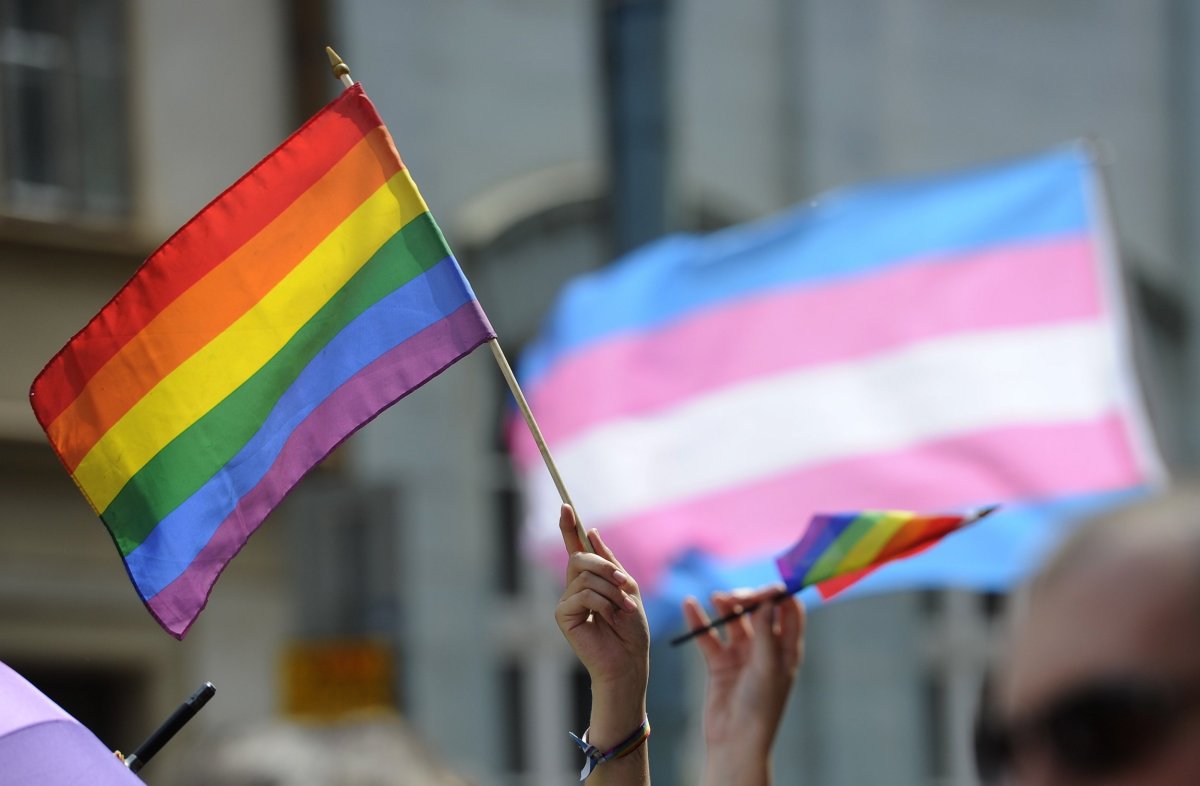The brains of transgender people are wired in a way that matches the gender they identify with rather than their biological sex, according to a new study.
Researchers found that whether a person identifies as transgender could be tied to how their brains develop in the womb. A person might identify as transgender when the gender they are assigned at birth according to their sex does not match how they feel inside. For instance, a person with a penis who is told they are a boy at birth could later grow up to identify as a woman.
To arrive at their findings, researchers at the VU University Medical Center in the Netherlands analyzed the brain activity of young transgender people using MRI scans. Around 160 young people were involved in the small study, including adolescent boys and girls with gender dysphoria.

The team assessed how their brains changed in response to a pheromone that prompts gender-specific activity in the organ. They found that the transgender adolescents had parallels with the brain activity of cisgender participants of the same gender. Cisgender is the term used to describe a person who identifies with the gender they were assigned at birth.
Professor Julie Bakker, an expert in neuroendocrinology at the University of Liege and lead author of the study, told Newsweek: "The earlier it [being transgender] is detected, the better the outcome of the treatment.
"For instance in the Netherlands, youngsters are being treated with puberty inhibitors at 12 years of age to prevent the development of secondary sex characteristics which are difficult or even impossible to reverse (like the lowering of the voice in boys) and then at 16 years of age, they can start with cross-sex hormones. It has been shown that these youngsters are doing relatively well and are well accepted by their peers."
Acknowledging that the study had a small cohort, she explained that the number of studies on this topic have been growing in recent years and researchers have been their sharing data.
Bakker added: "It is important to study the origin of sex differences in the brain, not only for making clinical decisions for people suffering from disorders of sex development or from gender dysphoria, but also because there are important sex differences in the incidence of a wide variety of neurological diseases such as autism, depression, schizophrenia and neurodegenerative diseases such as Alzheimer's disease.
"We need to know more about how sex hormones influence brain function and structure." She explained that while most studies have been performed on male subjects, both humans and animals, these do not always relate to females.
"It has been shown that women are more sensitive to morphine or sleep medication, and there could be many other differences that have not been discovered yet because one has been focusing on males only," she said.
Dr. James Barrett, lead clinician at the Gender Identity Clinic and president of the British Association of Gender Identity Specialists, was among those to peer review the study. He told Newsweek it was the latest piece of evidence to provide a link between the brain structures of transgender people and the gender with which they identify.
"It used to be held long ago that all of this was psychological, and over the years the pendulum of 'Is it nature or nurture?' has swung rather more toward the nature side of it, with increasing peculiar pieces of biological evidence suggesting there may be something innate in the pre-uterine environment," he said.
Asked to address those who claim that being transgender is a "lifestyle choice," he said: "It is not the experience with the people I deal with on a day to day basis. I imagine they are the same people who say that gay people have a choice.
"Do people choose to be left-handed? You can make them write right-handed, and they can get quite good at it, but they'd be fundamentally left-handed. Why people are left-handed is a complicated business—but in the end, left-handed they are," he concluded.
Uncommon Knowledge
Newsweek is committed to challenging conventional wisdom and finding connections in the search for common ground.
Newsweek is committed to challenging conventional wisdom and finding connections in the search for common ground.
About the writer
Kashmira Gander is Deputy Science Editor at Newsweek. Her interests include health, gender, LGBTQIA+ issues, human rights, subcultures, music, and lifestyle. Her ... Read more
To read how Newsweek uses AI as a newsroom tool, Click here.








